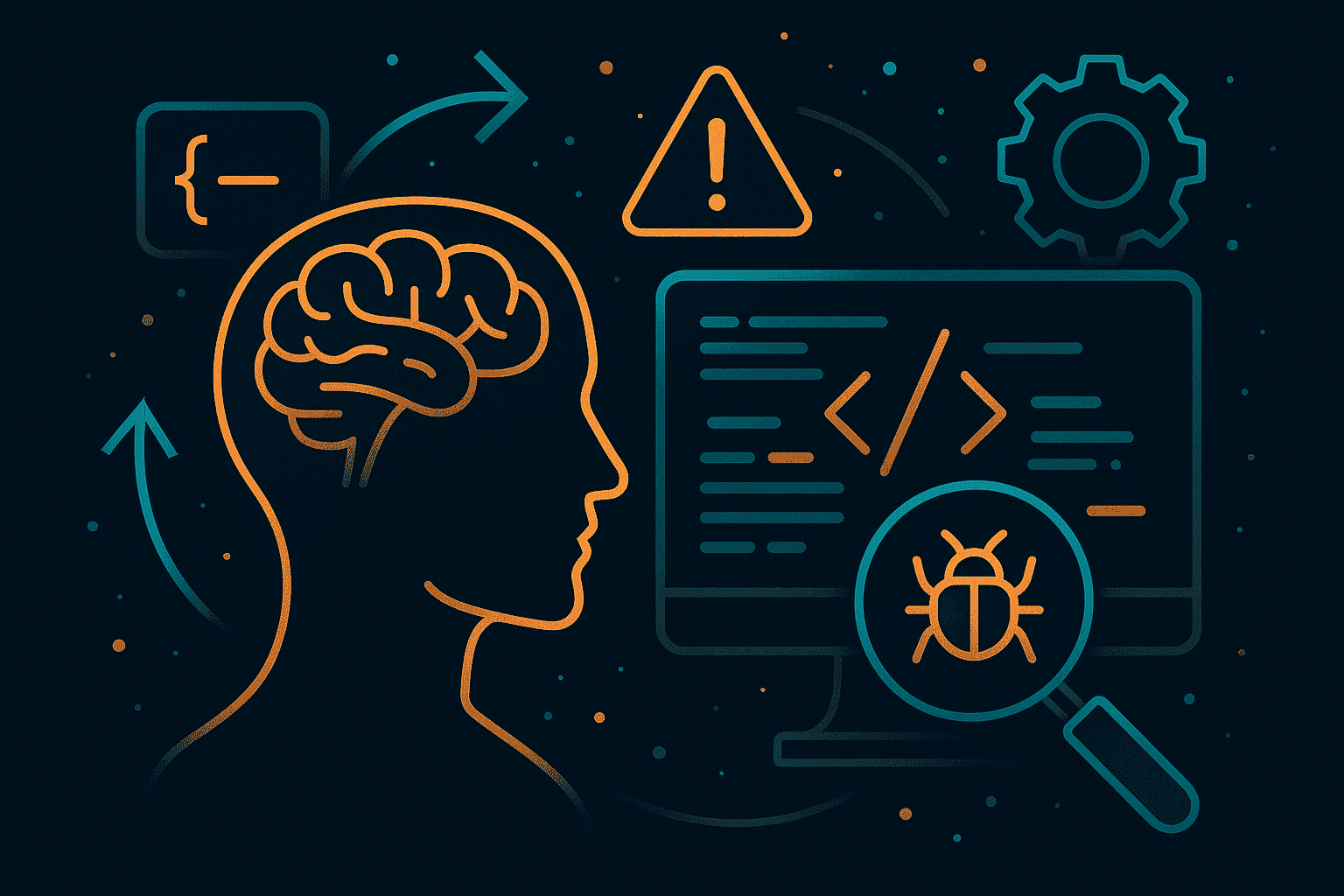Get-DebuggerMindset

How problem-solving in code reshapes how we solve problems in life
The cursor blinks like it knows you’re stuck. It’s 2:07 AM, and the bug you’ve been chasing for hours refuses to surrender. You’ve “fixed” it five times already, each attempt as hopeful as the last, and yet—here it is, alive and kicking. The machine doesn’t lie, and it doesn’t care about your feelings. All you’ve got is an error message, a vague stack trace, and a creeping sense that maybe the problem isn’t in the code at all, but in how you’re approaching it.
That’s the moment debugging stops being a technical exercise and starts becoming a philosophy. Debugging rewires the brain. It teaches patience, because rushing only makes the bug burrow deeper. It teaches humility, because nine times out of ten the code isn’t misbehaving—it’s holding up a mirror to your own blind spots. And most of all, it teaches iteration: the slow, methodical dance of hypothesis, test, adjust, repeat. Debugging is the scientific method with a keyboard.
Over time, that mindset bleeds beyond the screen. A good debugger doesn’t rage at the bug—they get curious. Frustration blocks insight, but curiosity opens it. Instead of asking “Why isn’t this working?” the debugger asks “What is this trying to tell me about the system?” Life works the same way. A setback, a failure, a disappointment—each is a signal, not a dead end. Debugging teaches you to replace blame with investigation.
Then there’s the art of breaking big problems into small, reproducible steps. Every developer knows: if you can’t reproduce the bug, you can’t fix it. So you isolate variables. You strip away complexity until only the core problem remains. Out in the world, the same principle applies. Instead of “fix my entire career,” debug one variable—update the resume, send one email, reframe one habit. Large chaos becomes solvable when it’s refracted into smaller, testable pieces.
Debugging also sharpens your ability to read signals. Logs, stack traces, cryptic error codes—machines do tell you what’s wrong, but you have to learn their language. People and systems do too. Burnout, friction in a team, creative boredom—those are error messages in disguise. The debugger’s gift is learning to listen for feedback loops everywhere, not just in code.
And perhaps the most important lesson: knowing when to step away. Every engineer has lived the paradox—the fix reveals itself in the shower, on a walk, or after sleep. The brain keeps debugging even when we stop forcing it. Debugging shows us that rest isn’t wasted time; it’s an integral part of problem-solving. Sometimes the most productive thing you can do is close the laptop.
Maybe life itself is one endless debugging session. We inherit “legacy code”—beliefs, habits, assumptions—that worked under old conditions but break under new ones. We patch, refactor, adapt. Never perfect, always improving. Debugging isn’t about reaching some mythical state of bug-free perfection. It’s about learning to live in the loop: test, learn, adjust, repeat.
So the next time the cursor blinks at you, mocking your confusion, remember: it’s not an enemy. It’s an invitation. Debugging isn’t just fixing broken code—it’s training the mind to be curious, resilient, and humble. In the end, the most important program we’ll ever debug isn’t in the machine. It’s in ourselves.
